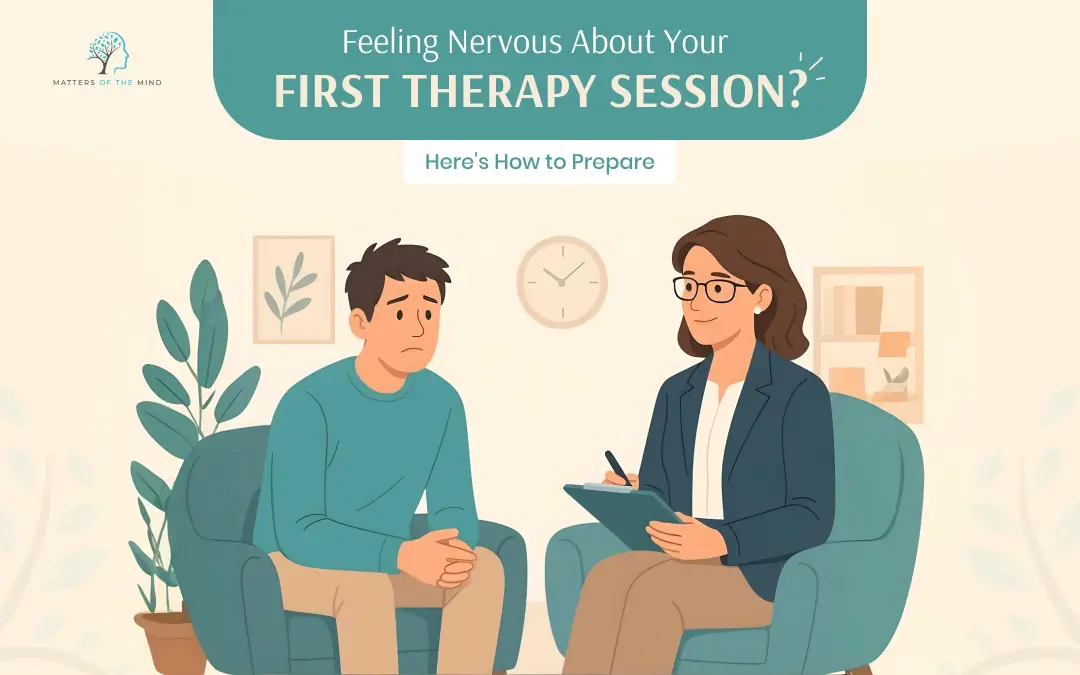What Exactly You Have To Do Before Your First Therapy Session?
1. Acknowledge and Normalise Your Feelings
2. Reflect on Your Reasons for Seeking Therapy
Take a moment to reflect on what brings you to therapy. Are you dealing with a specific issue such as anxiety, stress, or relationship difficulties? Are you simply feeling stuck or overwhelmed? Identifying your reasons, even in broad terms, can help you communicate more clearly in your session and give the therapist a helpful starting point.
3. Understand the Therapeutic Process
4. Gather any relevant information
- Brief notes about recent challenges you’re facing
- A history of any previous therapy or counselling experiences
- Details of any medications or diagnoses
- Medical or family history that you feel may be important to share
This background allows your therapist to develop a more complete understanding of your needs from the outset.

5. Share at Your Own Pace
6. Consider an online consultation first
Final Thoughts
If you’re considering starting therapy, whether for the first time or after a break, know that the right support is available. With the right guidance, psychological therapies can be a powerful tool for self-understanding, emotional healing, and personal growth.

Begin Your Journey with Dr Kavita Deepak-Knights
Book an online consultation today and take the first step towards emotional clarity and well-being.

